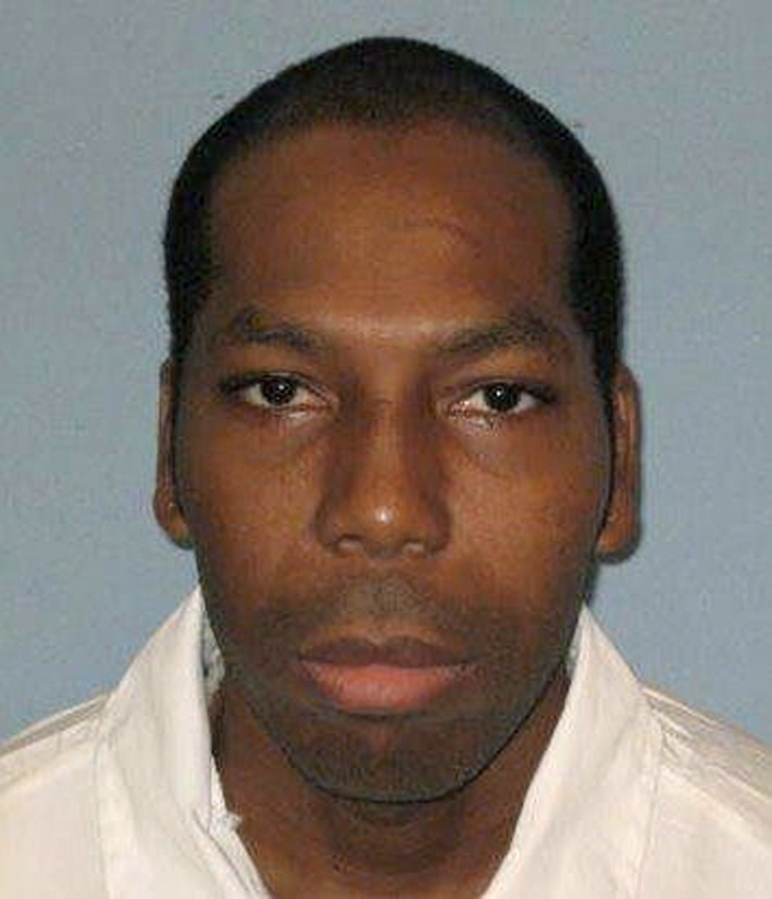MONTGOMERY, Ala. — Alabama asked the U.S. Supreme Court to let it proceed with the Thursday execution of an inmate who won a stay on religious grounds after asking to have his imam in the execution chamber instead of the Christian prison chaplain.
Dominique Ray, 42, was scheduled to be executed Thursday night for the 1995 murder of 15-year-old Tiffany Harville. The Alabama attorney general’s office asked justices to vacate a stay issued by the 11th U.S. Circuit Court of Appeals blocking the execution.
The state argued that Ray has ample opportunity to visit with his imam before the lethal injection and said his lawsuit was an attempt to delay the execution.
“Ray’s eleventh-hour filing smacks of gamesmanship, suggesting that the timing of his lawsuit and stay request were a strategic move to delay his case” and delay his execution, attorneys for the state wrote.
Alabama said it could not accommodate Ray’s request to have an imam at his side because only prison employees are allowed in the chamber for security reasons. The state agreed to remove the chaplain for Ray’s execution.
State attorneys said Alabama procedures allow Ray’s imam to visit him before he is led to the execution chamber and to witness the execution from an adjoining room.
The 11th Circuit stayed the execution to weigh claims that Alabama’s procedures favor Christian inmates. Ray, who is Muslim, asked that his imam replace a Christian prison chaplain who typically remains in the execution chamber during a lethal injection. The chaplain will pray with an inmate if the inmate requests it.
“The central constitutional problem here is that the state has regularly placed a Christian cleric in the execution room to minister to the needs of Christian inmates, but has refused to provide the same benefit to a devout Muslim and all other non-Christians,” the three-judge panel wrote.
Ray’s attorneys asked the court to maintain the stay.
Harville disappeared from her Selma home in July 1995. Her decomposing body was found in a cotton field a month later.
Ray was convicted in 1999 after another man, Marcus Owden, confessed to his role in the crime and implicated Ray. Owden told police that they had picked the girl up for a night out on the town and then raped her. Owden said that Ray cut the girl’s throat. Owden pleaded guilty to murder, testified against Ray and is serving a life sentence without parole.
A jury recommended the death penalty for Ray by a 11-1 vote.
Ray’s legal team has also asked the court to stay the execution on other grounds.
They argued it was not disclosed to the defense team that records from a state psychiatric facility suggested Owden suffered from schizophrenia and delusions. Attorneys said the state had a duty to find and produce the information.




